Shocking facts about the life and health women in Europe in XVIII-XIX centuries
Modern people so quickly accustomed to the various benefits of civilization that it is difficult to imagine, as before without them. What problems with health and hygiene occurred in people of the middle Ages, is widely known. But the most amazing thing is that these issues remained relevant to women in Europe until the mid-nineteenth century.
Just half a century ago, menstruation was considered a disease during which is contraindicated in mental activity, to overcome the smell of sweat was a challenge, but frequent washing of the genital organs was called cause of infertility in women.
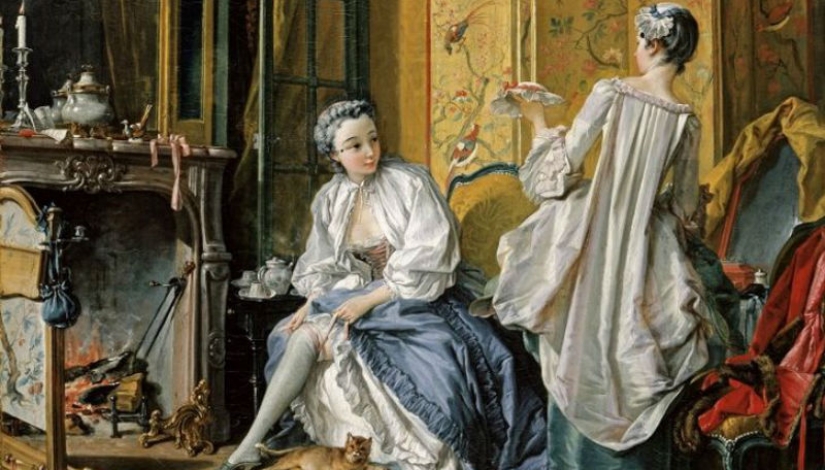
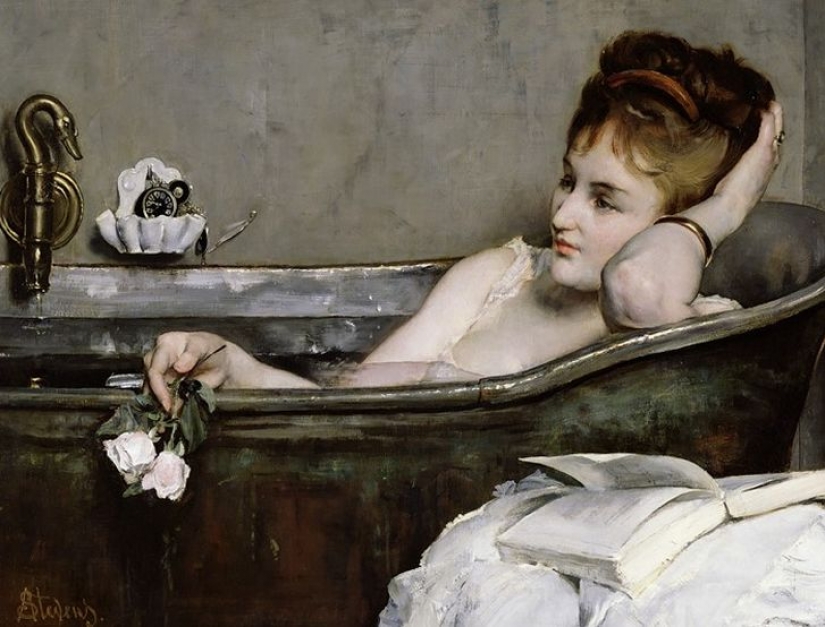
The critical days in that time was pretty critical. No personal hygiene did not exist — used pieces of cloth repeated use. In England in the Victorian era it was considered that the status of women in this period, deteriorates mental activity so reading forbidden. American scientist Edward Clark generally argued that higher education undermines the reproductive capacity of women.
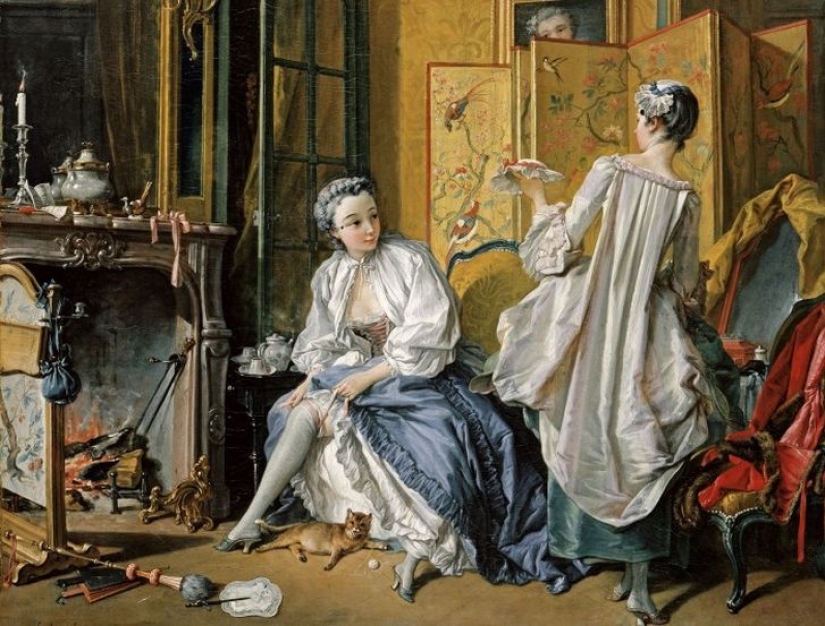
Bathed in those days, very rarely and reluctantly. Most people believed that hot water promotes the penetration of infection into the body. German physician, author of the book "the New natural treatment" Friedrich Railing at the end of the nineteenth century had to persuade people: "There are people who, in truth, did not dare to swim in the river or in the bath, because from childhood never entered the water. This unfounded fear. After the fifth or sixth bath you get used to it".
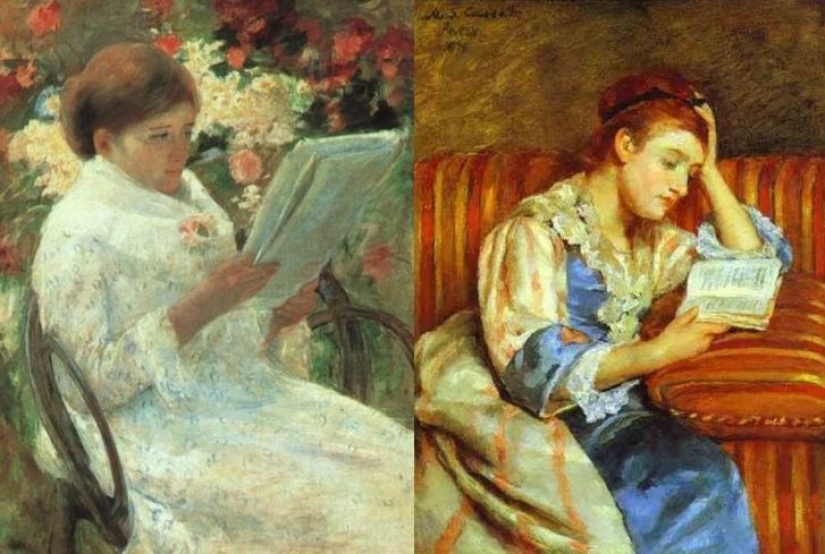
Mary Cassatt. Left — "Woman reading in a garden", 1880. Right — "Young woman reading", 1876
Slightly better was the case with oral hygiene. Toothpaste began to produce Italian manufacturers in 1700, but enjoyed her unit. The production of the toothbrush began in 1780. The Englishman William Addis during his jail sentence came up with to drill in the bone hole and to pass through them, the tufts of bristles, fixing them with glue. Once free, he started producing toothbrushes on a commercial scale.
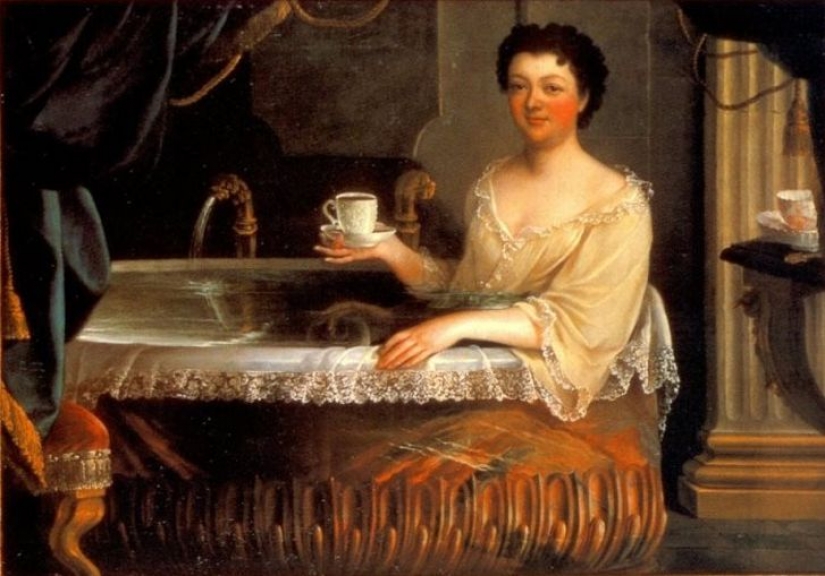
Frequent bathing was considered unhealthy
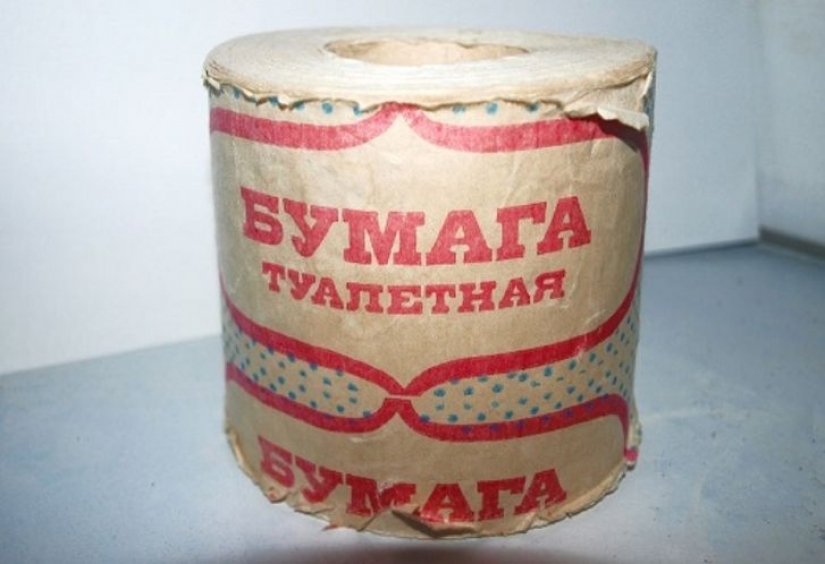
The first real toilet paper began to be produced in England, only in 1880-ies. The first serial production of a roll of toilet paper began in 1890 in the United States. So far as toilet paper is used the means at hand, mainly Newspapers. In this regard, joked that Johannes Gutenberg was the official inventor of the printing press and the unofficial inventor of toilet paper.
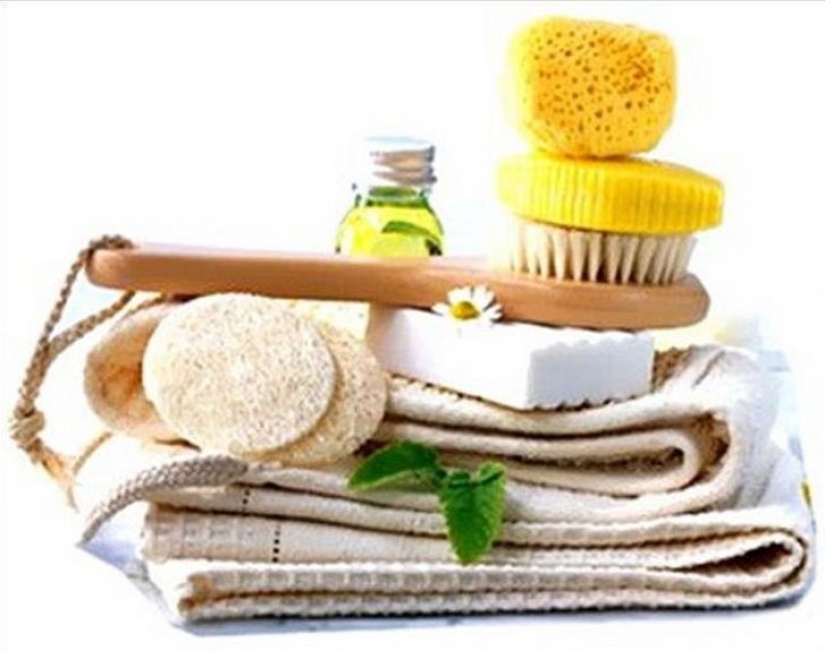
A breakthrough in the field of personal hygiene occurred in the mid-nineteenth century, when medicine there was a view about the relationship of bacteria to infectious diseases. The number of bacteria on the body after washing was significantly decreased. The first to maintain the cleanliness of the body has achieved success women: they began to take a bath daily using soap. But until the early twentieth century it was thought that frequent washing of the genital organs in women can lead to infertility.
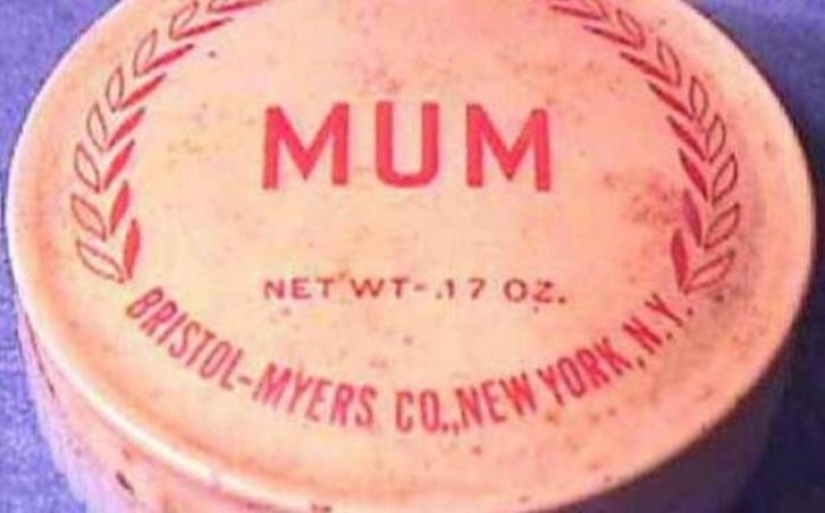
The first deodorant brand "Mother"
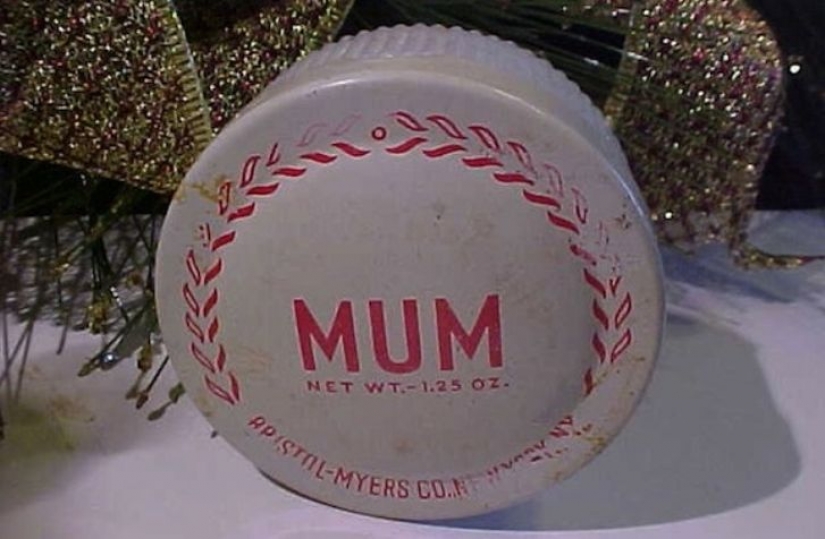
The first deodorant appeared in 1888, before fighting with the problem of the smell of sweat was very inefficient. Spirits were interrupted by an unpleasant smell, but did not eliminate it. The first antiperspirant, which reduced the ducts of sweat glands, eliminating the smell appeared only in 1903.
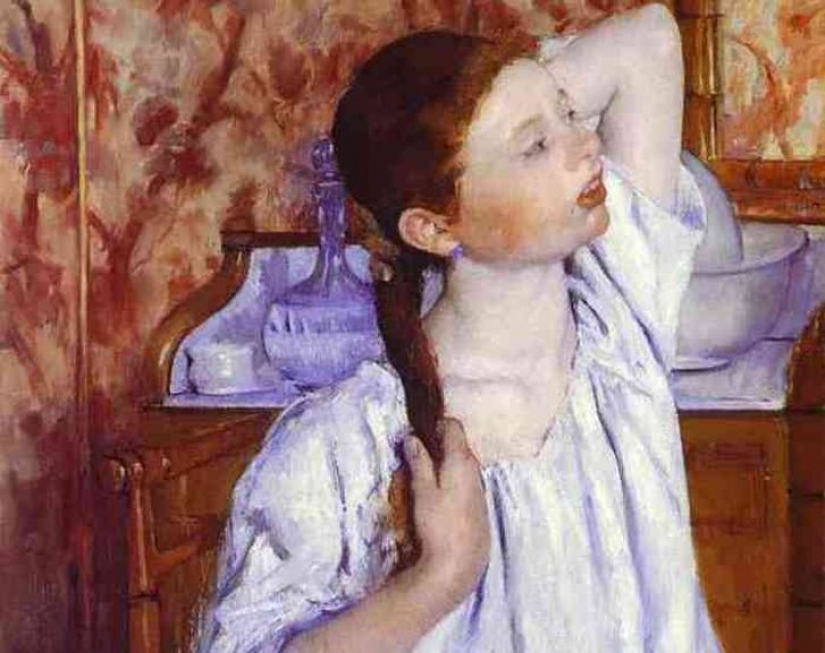
Mary Cassatt. "Girl, combed their hair", 1886. Fragment
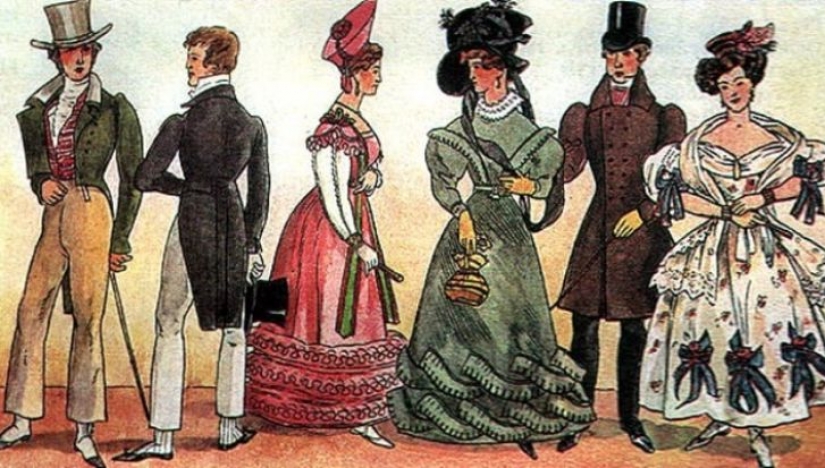
Until 1920-ies the removal of body hair among women was not practiced. Hair washed with ordinary soap or a homemade facial cleanser. Shampoo was invented only in the late nineteenth century. A common problem was the lice, and fought lice radical methods — they were taken by mercury, which at that time was considered a cure for many diseases.
Keywords: Life | Hygiene | Women | Facts
Post News ArticleRecent articles

It's high time to admit that this whole hipster idea has gone too far. The concept has become so popular that even restaurants have ...

There is a perception that people only use 10% of their brain potential. But the heroes of our review, apparently, found a way to ...
Related articles

Tired after a hard day at work? Suffer from autumn depression? Don't know how to entertain yourself in your free time? This ...

Being caught in the so-called "molly's houses" was not just dangerous — in the XVIII century it could easily lead a man to the ...

No that does not happen the new year? Of course, no snow. The snow transforms any landscape into a fairy, and after a snowfall it's ...

New Year's is a time to surprise and delight loved ones not only with gifts but also with a unique presentation of the holiday ...